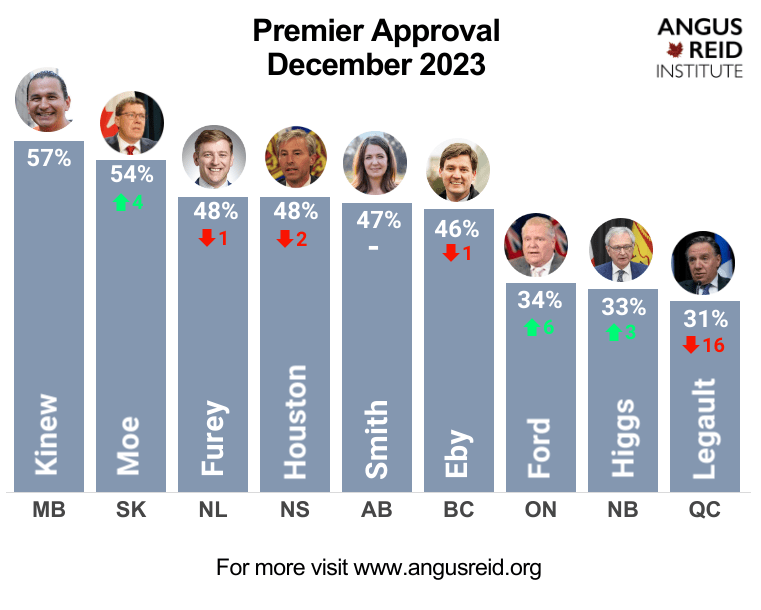Premier Legault now ranks dead last in Angus Reid's Premier Popularity poll.
Legault’s approval plummets;
The fall winds have blown bitter and cold for Premier Legault in Quebec. More than 60,000 teachers have been on strike in the province since Nov. 23, closing 800 schools, while the Front Commun, a collection of four other unions representing 420,000 public employees, including health, education and social services, is threatening a province-wide general strike as it too seeks a new agreement for its members. The labour action isn’t the only biting headwind Legault is facing, as he deals with backlash over new out-of-province tuition fees at Quebec post-secondary schools, criticism over government subsidies for pre-season NHL games in Quebec City, and headaches surrounding the ballooning cost of a light rail system for Quebec City, which Legault’s government put on pause right as construction began. All this adds to flagging approval for the once-popular premier. Currently, 31 per cent say they approve of Legault, an enormous 16-point decline over a three-month period.
https://angusreid.org/premiers-approval-francois-legault-doug-ford-david...



